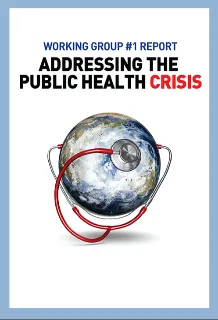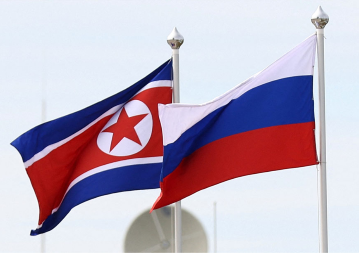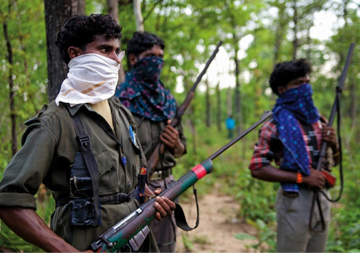Executive Summary
Globalisation has integrated nations, economies and people. It has also led to an inadvertent rise in the internationalisation of infectious diseases. Over the past few decades, the global community has witnessed several epidemics, including the SARS (Severe Acute Respiratory Syndrome) outbreak between 2002-2004 and the Ebola epidemic between 2014-2016. The expanding population, rapid urbanisation, and changing weather and climate have further catalysed the spread of infectious diseases. In our digital age, it has been estimated that the outbreak of an infectious agent can travel from a remote village to any hub in the world in less than 36 hours—with the related economic and social impact travelling with it.
As a consequence of past outbreaks, we have witnessed policymakers promising the development of health infrastructure and healthcare delivery mechanisms down to the community level. The current pandemic reveals that this has either not happened or is insufficient. We must use this moment to dedicate funds, resources and political capital to create resilient global frameworks to respond to epidemics, perverse practices that make us more susceptible to epidemics, and underlying circumstances that can halt our lives so dramatically.
Originating in late 2019, the novel coronavirus has travelled widely and speedily throughout the world, directly affecting the health of millions, and putting billions at risk. Very little was known about the coronavirus at the onset of the outbreak, and much remains to be discovered, but the virus has certainly proven to be highly contagious and lethal. The COVID-19 pandemic has left both strong and relatively weaker health systems in shambles. It has exposed several shortcomings of the global health system—inadequate funding, feeble infrastructure, inequitable access, and opaque international governance and discussions. The COVID-19 crisis has been accompanied by a plethora of misinformation and disinformation crossing borders, thereby hampering the world’s ability to effectively counter the pandemic. This has emphasised the need to put into place real-time communication systems and engagement frameworks amongst global partners, nations and multilateral agencies, communities and individuals.
This report is divided into six sections that examine health systems at a global, national and local level while dealing with large-scale public health crises like the COVID-19 pandemic. Working Group members were divided into sub-groups, based on their individual and institutional areas of interest and expertise. Sub-group leaders were tasked with coordinating the efforts towards convening meetings, compiling information and writing sub-theme reports.
Heritage Foundation’s Bridgett Wagner took the lead on the sub-theme of ‘Knowledge and Information Sharing’, while Institute for National Security Studies’ Amos Yadlin and Ari Heistein led the group that worked on compiling ‘Best Practices and Policies to Manage a Public Health Crisis’. Chatham House’s Robert Yates spearheaded the sections on Universal Health Coverage and ‘Equitable Distribution of Vaccines, Medicines, and Capabilities’ along with Venkat Nadella from India’s DST-Centre for Policy Research, Indian Institute of Science. Angela Mo and Pamela Tin, colleagues from Our Hong Kong Foundation, took the lead on the sub-theme
‘Treatment of Non-COVID-19 patients’, which has been an aspect of public healthcare that has often been overlooked during this crisis. Group co-chair Samir Saran led the group working on ‘#Tech4All— Bridging the Digital Divide’, while Richard Chasdi from George Washington University and co-chair Aaron Shull led the section on ‘Health Preparedness and Resilience: Country Assessments’.
The views expressed above belong to the author(s). ORF research and analyses now available on Telegram! Click here to access our curated content — blogs, longforms and interviews.

 PDF Download
PDF Download



 PREV
PREV

